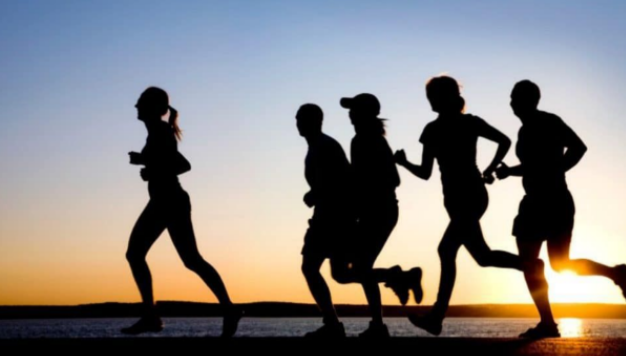Students Need More Exercise
January 6, 2021
Dear Editor:
When the COVID pandemic first developed, it took everyone by surprise. Habits changed, people isolated themselves, and gyms closed. These developments increased the number of people living overall sedentary lifestyles. According to Time, only 25% of American adults got the government-recommended dose of exercise each week before the pandemic. As COVID-19 has continued far longer than people expected, unhealthy habits have emerged, and the amount of time people spend exercising has gone down exponentially in some cases. Students need to analyze their exercise habits and start exercising more to benefit their physical and emotional health, especially during this COVID pandemic. Exercise is beneficial to physical and emotional health, so students need to be more consistent in their movement. As Sean Patrick Flanery said, “Do something today that your future self will thank you for.”
Doesn’t everyone want to look and be healthy? Yes, but being healthy is not as easy as going to the gym once a week. Students need to develop a proper exercise lifestyle to change permanently. As New Year’s resolutions exemplify, committing to an exercise plan is not the easiest goal to achieve. After a couple of weeks, the forgotten resolution is no more than a mere hope. How does one develop a healthy lifestyle? It all starts with habits. According to The Power of Habit, by Charles Duhigg, habits are made up of three things: the cue, the routine, and the reward. It is possible to change unhealthy habits by keeping the cue and reward the same while only altering the routine. For example, if someone feels like eating candy, which releases dopamine, they could do a quick exercise instead with the same reward. Exercise doesn’t have to be an hour-long workout. Doing simple things such as a set of push-ups, sit-ups, stretches, or walks throughout the day is a fine place to start. Students need to exercise more because movement benefits physical health. According to
the CDC, less than a quarter of children from 6-17 years old get 60 minutes of physical activity per day. This is very detrimental to student health because exercise improves cardiorespiratory fitness, builds strong bones and muscles, and controls weight. Having good cardiovascular fitness is significant because it reduces the risk of heart disease and allows students to participate in brisk-paced activities with friends. Such activities may include sports and games, where moving is imperative. Some people may believe that cardiovascular fitness is only improved when they can run several miles at a time. That is not the case because the American Heart Association says, “Walking improves cholesterol levels, blood pressure, and energy levels, plus it can fight weight gain to improve heart health overall.” Cardiovascular health is not as hard to achieve as people think. Exercise also helps students improve their physical appearance, which is a large cause of stress for teenagers. If these are only some of the physical benefits of movement, what other emotional/mental advantages are available?
In addition to physical health, exercise improves emotional health. One way that exercise benefits mental health is by improving mood. Exercise increases the level of endorphins released in the body, which are natural mood lifters. As depression is a growing issue among teenagers of today, this lift in mood from endorphins helps counteract the detriments of depression. Not only does exercise lift a student’s disposition, but it also increases student confidence. Physical achievements during exercise and the accomplishment of goals gives a large boost to self-esteem, which students today sorely need. Lastly, exercise and movement aid in sleep. The Nationwide Children’s Hospital states that the average teenager gets about seven hours of sleep when the recommended amount is about nine and a half hours. Sleep influences mood, mental health, physical health, and the ability to function in school, so if exercise can improve it, why aren’t people willing to change?
Exercising and changing habits is hard, but the long-lasting benefits far outweigh the challenges. Students need to improve and grow their exercise/movement routines because it will benefit their physical health and give them mental health boosts that will help them cope with the stresses of today’s world. What can they do now? Students can replace small, unhealthy habits with better, health-benefiting ones. The only ineffective workout is the one that didn’t happen.
Sincerely,
Stephen Soderberg, Class of 2023


